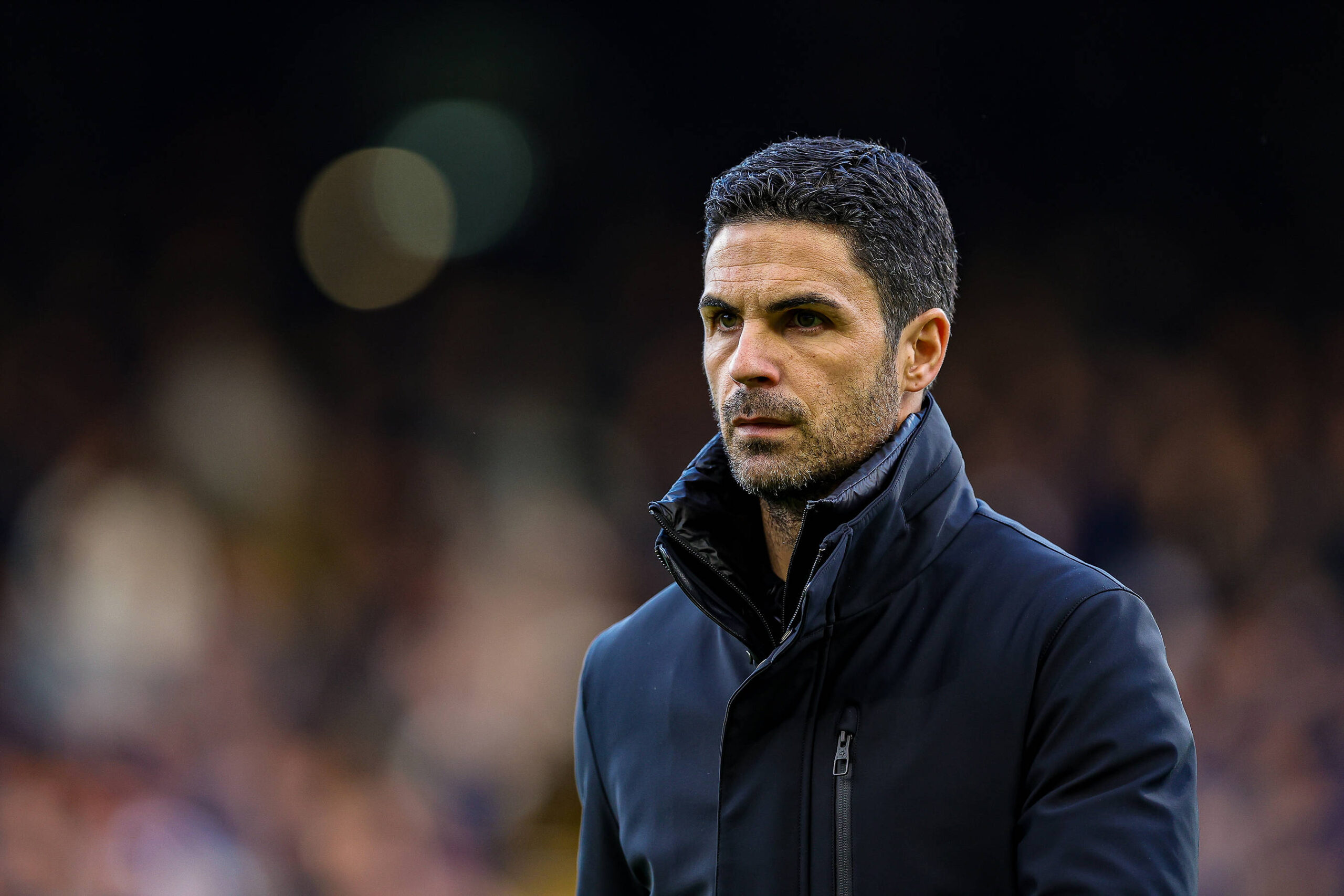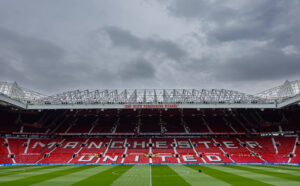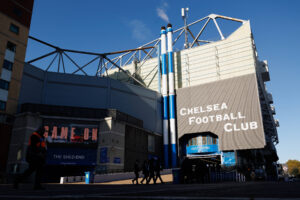Mikel Arteta and everyone else associated with Arsenal must wish that Porto played in claret and blue. If they did, the Gunners would be even stronger favourites than they already are for their forthcoming Champions League Round of 16 match-up, after scoring eleven goals in two away games against teams in claret and blue (first West Ham and then Burnley). Unfortunately for Arsenal, Porto play in blue and white.
However, even if the Portuguese side somehow changed their kit for the tie with the North Londoners to claret and blue, it would probably still not make much difference for the Gunners, who historically have always underperformed in Europe, at least relative to their outstanding record in domestic league and cup competitions. Indeed, given Arsenal’s generally awful record in European competition, especially for a club of their size, Porto could probably play in claret and blue, with seven men, and still win.
The challenge for the Spanish manager is to change that record, not just this season but over the next few seasons. Even Tottenham, Arsenal’s greatest rivals, who have struggled to compete with the Gunners domestically for most of the last six decades, have won more European trophies (three in total) than Arsenal have.
Can Arsenal Finally Taste Success in Europe?
Why Have Arsenal Always Been So Bad In Europe?
It is fascinating to consider why Arsenal have always done so poorly in Europe. The first and easiest answer is that Arsenal’s golden age, the 1930s (which actually extended after the end of World War Two into the early 1950s), came before the introduction of European club competition. Herbert Chapman, Arsenal’s greatest manager and the real architect of Arsenal’s enduring success as a club, dreamt of competing against the other best teams in Europe before he died in 1934.
However, it would be another two decades before real European club competition began. Unfortunately for the Gunners, that coincided with the worst trophy drought in the club’s history, from 1953 to 1970, when they did not win anything and rarely qualified for Europe.
Given Arsenal’s generally poor record in European competition (when they have been able to qualify for it), it is remarkable that the rebirth of Arsenal after their increasingly distant golden age came with the club’s first European triumph in 1970. Emboldened by that historic success, the Gunners won the League and Cup double for the first time the following year and seemed set for success, including in Europe, for years to come.
However, it would be nearly another quarter-century before Arsenal won another European trophy, the 1994 Cup-Winners’ Cup, when they beat Italy’s Parma (at a time when Italian clubs generally ruled Europe) in the final.
So, in total Arsenal have only ever won two European trophies in total, and the second and last of those triumphs came 30 years ago. Since then, there have only been a succession of defeats in European finals, most notably, of course, the 2006 Champions League final, which Arsenal lost 2-1 to Barcelona after leading for most of the game.
Watch: The Domino Effect Ruining Football
Why Was Wenger In Particular So Poor In Europe?
Arsène Wenger never won a European trophy, either with Arsenal or anyone else. He has the unique distinction of being the only manager to lose in the final of the three major European competitions: the old Cup-Winners’ Cup (his Monaco lost the 1992 final to Werder Bremen); the UEFA Cup/Europa League (his Arsenal side lost the 2000 final to Galatasaray); and of course the Champions League in 2006.
It has always seemed ironic that Wenger, the great European innovator, had a far worse record in European club competition than his predecessor, George Graham, who won the 1994 Cup-Winners’ Cup and was in the process of leading Arsenal back to the 1995 final of the same competition when he was sacked by the club for financial mismanagement.
By contrast, Wenger’s sides, even his 2004 Invincibles, always struggled to impose their will on teams in Europe in the way that they did routinely on teams in England.
In retrospect, there were probably two very good reasons why Wenger’s Arsenal teams struggled in European competition. The first is that Wenger was always an essentially attacking manager who arguably never paid the same attention to defence as he did to attack, which was a crucial mistake in European competition, at least before the abolition of the away goals rule a few years ago.
And the second was that the lynchpin of his great Arsenal teams, Dennis Bergkamp, was of course the non-flying Dutchman, meaning those teams often had to play in key Champions League away matches without him.
Can Arteta Alter Arsenal’s Awful Record In Europe?
Now, after six years out of the Champions League, a period that also included a record Cup final defeat of any kind, domestically or in Europe, when they lost the 2019 Europa League final 4-1 to Chelsea, Arsenal will resume their 2023-24 Champions League campaign with Arteta hoping that he can finally begin to turn around the club’s European form.
So far, he has not been very successful, with his best run in European competition with Arsenal being that of 2021 when the Gunners reached the semifinal of the Europa League only to lose to Villareal, who were managed at the time by Unai Emery, Arteta’s immediate predecessor as Arsenal manager.
And last season was arguably even worse. Arteta needlessly risked William Saliba in an essentially meaningless last-16 Europa League tie against Sporting Lisbon; the centreback was injured in that game and the team never recovered from his absence for the rest of the season.
Nevertheless, Arteta can be optimistic against Porto for several reasons, the first and most important being that they are among the weaker sides left in the competition, and the Portuguese club is also being destabilised by a bitter presidential election battle.
In addition, Arteta arguably has two things that Wenger never had, or at least only rarely had: a superb, solid defence (which matters greatly in European games, especially away from home, even after the abolition of the away goals rule); and a midfield general/main creator, captain Martin Ødegaard, who can be the flying Norwegian to Bergkamp’s non-flying Dutchman, especially after scoring against Burnley at the weekend for his first goal in 12 matches.
Perhaps The Only Way Is Up
Ironically, the very fact that Arsenal have such a generally lamentable record in European club competition may be the thing that is most in Arteta’s favour. Precisely because the club have traditionally not well done in Europe, especially in comparison to their domestic achievements, any sign of progress, however, small, will be seized upon and celebrated.
This season, European success would be making the last eight of the Champions League by defeating Porto, which Arsenal are eminently capable of, especially with the second leg of the tie at The Emirates. Reaching the quarterfinals of Europe’s premier club competition would be a great start, even perhaps a useful basecamp, for Arteta and his Arsenal side, as they attempt to win the one major competition that Arsenal have never won, namely the European Cup or Champions League.
They are unlikely to win it this season, but if they can at least reach the last eight of the competition that will be an advance on most of the European seasons that the Gunners have ever had.






